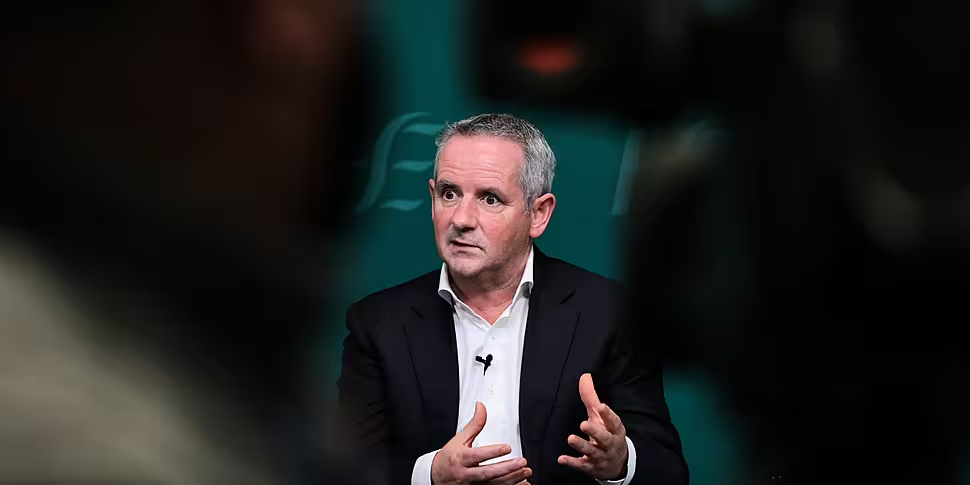Healthcare workers may be exempt from new rules requiring everyone in a home to isolate if a member of the household is diagnosed with COVID.
New rules announced this week require everyone in a household to restrict their movements for at least five days when a case is detected.
They can end their isolation if they have sat three clear antigen tests during the five days.
Speaking this afternoon, HSE chief Paul Reid said an exception is being considered in case the rules cause a major shortfall in healthcare staff.
“A derogation would apply to the extent that they would continue to restrict their movements as best they can, but they can go to work under certain monitoring conditions like temperature checks etc. and take the three antigen tests as would be recommended for the wider population,” he said.
Derogation
This evening, three trade unions representing healthcare workers wrote to HSE opposing the plan.
In a statement, Tony Fitzpatrick, Chair of the National Joint Council of health unions, which includes the INMO, SIPTU and Fórsa said health workers will not accept being treated differently to everyone else.
“We cannot repeat the mistakes of previous derogations that allowed healthcare workers to be exempt from public health advice,” he said.
“We know in the past that allowing healthcare workers to be exempt saw infections spike among healthcare workers and patients – particularly when it came to the care of older people.
“Healthcare workers should not be treated differently in terms of public health advice.”
He urged the Government to “take the concerns of patient-facing staff seriously”.
“We cannot have a situation where the highest cohort of workers, who are dealing with unvaccinated patients and working in environments with poor ventilation, like many of our healthcare settings, are putting their colleagues and loved ones at further risk.”
'Highest level of risk'
He said the health service is now facing the “highest level of impact and risk” it has faced since the pandemic began.
This evening a further 4,650 cases were announced, with the five-day moving average now sitting at 4,213.
This morning, there were 643 COVID-19 patients in hospital – up 18% on this time last week and 40% in the past fortnight.
There were 118 in intensive care, which is 21.5% more than last week.
Health officials are warning that non-elective healthcare will now likely be cancelled as many hospitals move to surge capacity.
Mr Reid said the HSE is trying to keep non-virus care going.
“This is certainly the highest level of impact and risk that we have had to manage since COVID landed here,” he said.
“I know there is often comparisons made to the numbers of hospitalisations we have had in January through March of over 2,000 and over 200 in ICU – but I would make the point that, at this stage, we are trying to deal with all other services.”
Booster
Mr Reid said the situation was extremely serious and urged people to get the booster vaccine where possible and continue following the guidelines.
“While there is much discussion and indeed value to be added by other layers that will protect us such as antigen testing and indeed the booster programme, our clinical teams are very clear to me that these are not magic wands,” he said.
No-shows
The HSE chief said some vaccination centres are seeing no-show rates as high as 50% for booster appointments.
“Certainly, we are seeing people not coming forward for a high number of appointments made,” he said.
“It’s really important if you’re offered a booster appointment that you take it up, we have seen some no-show rates and some centres varying from 25 to 50%. So, it’s a really important call to everybody, we are going to be dealing with significant elements of population and we need those appointments utilised.”
He said some people may have a false sense of security after originally getting the vaccine and warned that the more people that take the booster when it is available, the fewer end up in hospital.









